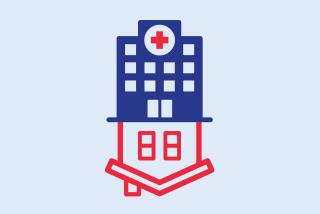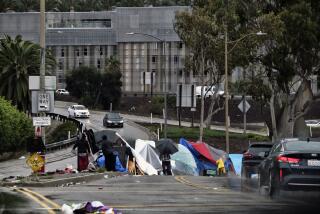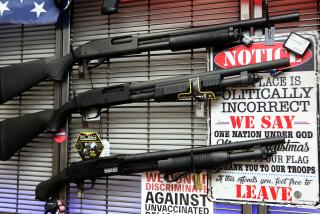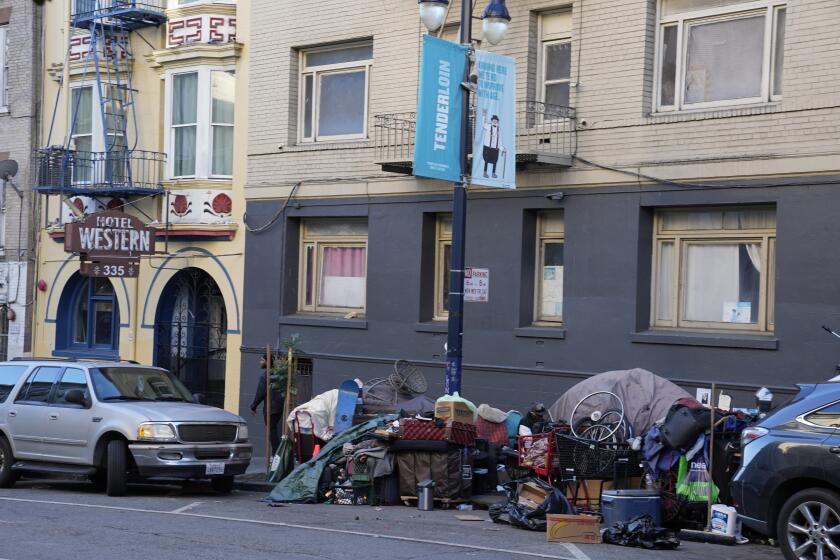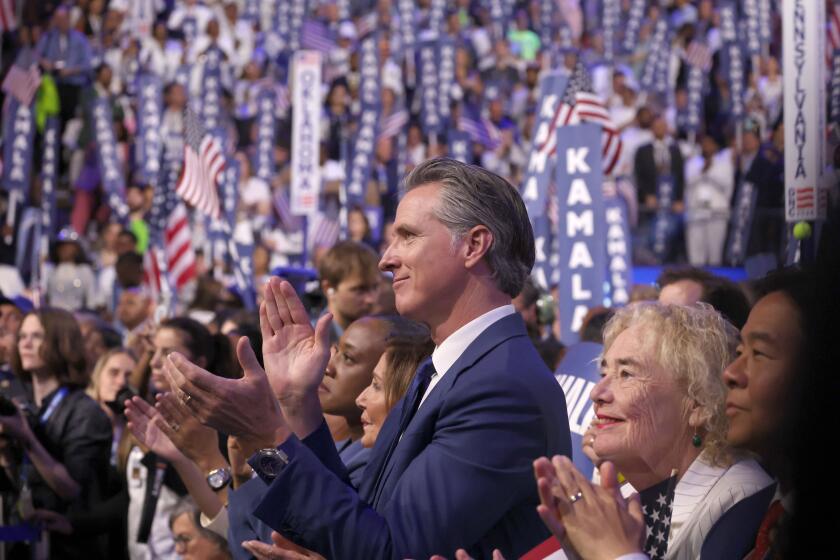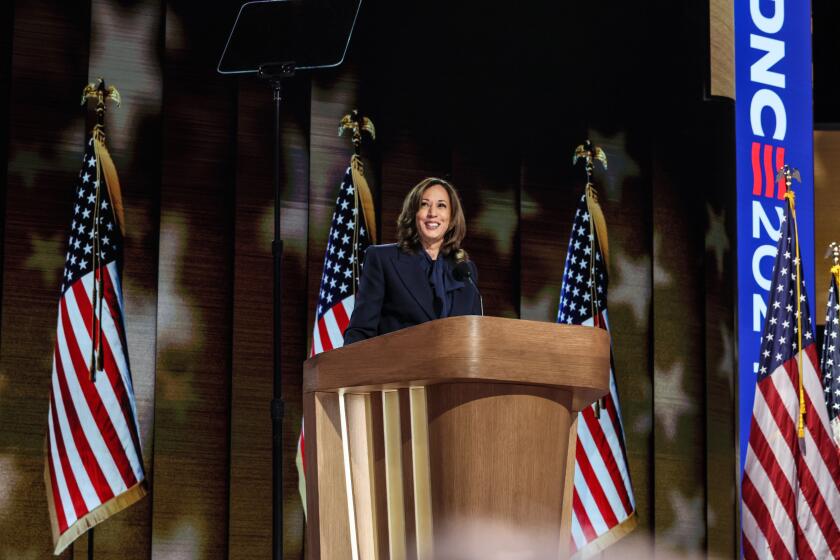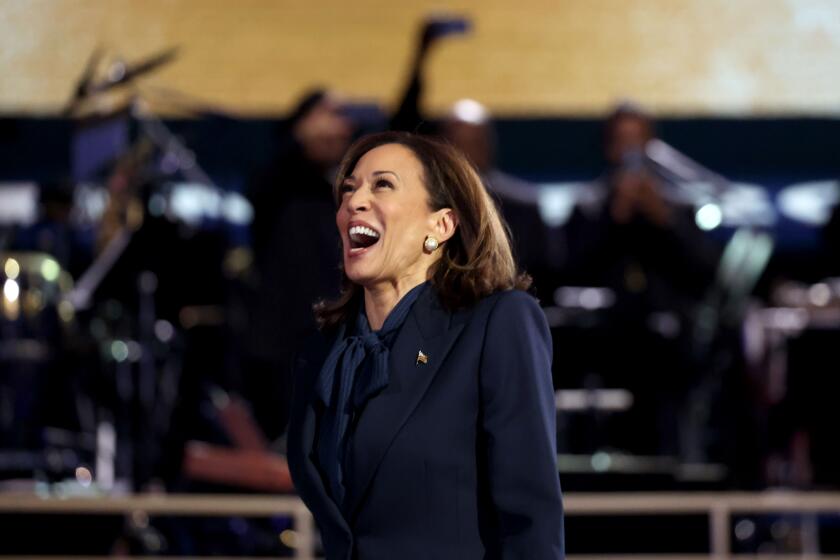Prop. 99 Funds OKd for Trauma Care Units
Nearly $1.5 billion in new tobacco tax revenues will be spent on health care for the poor, trauma centers and an anti-smoking advertising campaign under sweeping legislation signed Monday by Gov. George Deukmejian.
The measure by Assemblyman Phillip Isenberg (D-Sacramento), which divides money raised under Proposition 99, will provide funds for beleaguered county governments and such health care programs as prenatal services, clinics and children’s hospitals.
The Proposition 99 legislation was one of more than 200 measures awaiting action by the governor before his Monday midnight deadline for deciding the fate of bills passed by the Legislature this year.
The Republican governor signed a bill by Sen. Gary K. Hart (D-Santa Barbara) that will more than double the refund for recycled beverage containers. Beginning Jan. 1, two containers will be worth a nickel, up from the current penny for each bottle or can.
However, he vetoed a bill by Assembly Speaker Willie Brown (D-San Francisco) to provide low-cost automobile insurance for the state’s low-income drivers. Brown contended that the cut-rate coverage could have been subsidized with savings produced by clearing the roads of uninsured motorists and strengthening enforcement of vehicle safety laws.
At the same time, Deukmejian signed a bill sponsored by Atty. Gen. John K. Van de Kamp that will establish five labs to conduct DNA testing in crime cases, allowing the vastly increased use of “genetic fingerprinting” in criminal trials.
And the governor allowed to become law without his signature a measure permitting voters in Los Angeles and five other counties to raise their local sales taxes by half a cent to finance construction of new jails. Approval of a tax increase in Los Angeles County could raise $388 million to alleviate overcrowding in jails where inmates are now forced to sleep on the floor.
Additionally, Deukmejian signed a bill that could stymie efforts by Los Angeles Mayor Tom Bradley to restrict truck traffic on city streets. The measure by Sen. William Campbell (R-Hacienda Heights) will limit the city’s ability to charge truckers fees that would have been used to finance the mayor’s traffic control plan.
But the governor vetoed legislation designed to restrict Southern California water districts in covering reservoirs that offer a view of water for residents.
“Open water reservoirs are susceptible to a wide variety of contamination,” Deukmejian said in his veto message. “Although aesthetics and the preservation of property values are important considerations, they should not overcome our concern for public health and safety.”
The bill to spend Proposition 99 cigarette tax revenues provides a boost in funding for a variety of health care programs that have been starved for money in recent years.
Raising $600 Million
The initiative, approved by voters last year, is raising an estimated $600 million a year through a tax increase of 25 cents a pack on cigarettes and similar increases on other tobacco products.
The 2 1/2-year spending plan will provide $800 million to county governments, which operate the bulk of public health care programs. Los Angeles County will receive $350 million, part of which will be used to bolster the region’s sagging trauma care network.
In a move fought bitterly by the tobacco industry, the measure devotes another $28.6 million to a statewide promotional campaign aimed at discouraging young people from smoking and persuading smokers to give up the habit. In all, the bill allocates $279 million for anti-smoking education.
The remainder of the Proposition 99 funds will go directly to doctors and hospitals for health care services to poor patients.
The increase in the refund rate to “two for a nickel” for used bottles and cans is designed to prompt more people to return their beverage containers. At the current rate of a penny per container, recycling has fallen far short of the 65% goal contained in the legislation that established the program.
“A penny just isn’t worth very much, and that has been reflected in the recycling rates,” Hart said. “Consumers will now have a real incentive to bring back their bottles and cans.”
Under the new law, the rate will increase to 5 cents a container by 1993 if the recycling goal of 65% is not reached.
The low-cost auto insurance bill vetoed by Deukmejian would have guaranteed basic insurance coverage for $25 a month to individuals earning $20,000 or less and families of four with incomes of no more than $25,000 a year.
The insurance industry strenuously opposed the bill, saying the legislation could not deliver the cost savings needed to pay for the insurance and that the premiums offered in the measure were unrealistically low.
Brown said he was “disappointed but not surprised” by Deukmejian’s decision to veto the measure. “I am not finished,” he said. “I hope to start negotiations with the governor’s office early next year to find a compromise that will meet his objections without sacrificing the general principles of (the bill).”
Criminal Detection Technology
The DNA laboratory measure, also authored by Hart, will help law enforcement officials take advantage of recent advances in the technology of identifying individuals by their genetic makeup. Earlier this year, DNA evidence was used successfully in a California criminal prosecution for the first time.
The bill establishes a main DNA laboratory in Berkeley and regional labs in Los Angeles, Orange County, San Diego and San Bernardino.
“This is a tremendous step forward in our ability to solve major crimes,” Van de Kamp said. “It will be of particular value in rape cases, where tissue samples are frequently available as evidence, and in other crimes where placing a suspect or victim at a particular location can be decisive proof of a defendant’s guilt.”
The reservoir bill by Assemblyman Mike Roos (D-Los Angeles) was aimed at stopping a plan by the Los Angeles Department of Water and Power to put rubberized covers over six small neighborhood reservoirs and to build new water filtration plants at larger lakes.
Owners of property surrounding the reservoirs--including Roos, who is building a house above Silver Lake--strongly objected to plans to alter their scenic water views. Roos’ bill was opposed by water agencies throughout the state, including the Metropolitan Water District.
Veto Praised
Jay Malinoswki, an MWD spokesman, said the governor’s veto preserves the ability of water agencies to “deliver the highest quality water at the lowest possible cost.” But he insisted that water districts will not ignore residents. “The failure of this bill does not mean that those people who have a view of a reservoir will lose their voice,” he said.
For the second consecutive year, Deukmejian vetoed legislation by Assemblyman John Vasconcellos (D-Santa Clara) that would have prohibited employment and housing discrimination against people who are carrying the AIDS virus. The governor said the bill is unnecessary because such people already are protected from such discrimination.
But Vasconcellos suggested that the governor had not read his bill and said the measure had been amended to take care of the governor’s earlier problems with the legislation. “I’m saddened and perplexed,” Vasconcellos said. “Ignorance may be bliss but it does not hide bias.”
In other actions, the governor:
- Vetoed a bill by Sen. Alan Robbins (D-Tarzana) that would have prohibited construction of any mass transit--such as Metrorail--in portions of the San Fernando Valley unless it is built underground.
- Signed a bill by Assemblyman Terry B. Friedman (D-Los Angeles) to help pay for the drug AZT for AIDS patients who are not eligible for Medi-Cal because they are working but cannot afford the expensive drug.
- Vetoed a bill by Assemblyman Steve Peace (D-La Mesa) that would have made it illegal for an employer to discriminate against a worker for insisting on the right to a smoke-free workplace or against a worker who smokes outside the workplace. The governor said such individuals are already protected under current law.
- Signed legislation by Sen. Becky Morgan (R-Los Altos Hills) to crack down on “diploma mills” that issue degrees for taking questionable courses. The bill will give jurisdiction over vocational schools and unaccredited private post-secondary institutions to a new independent state commission.
- Signed into law a measure by Assemblywoman Maxine Waters (D-Los Angeles) that will lead to much stricter regulation of vocational schools, which in some cases have bilked students of their money and given them woefully inadequate training.
- Signed a bill by Assemblyman Charles M. Calderon (D-Whittier) requiring legislative committees to hold their meetings in public except when discussing personnel, security or legal matters.
- Signed a measure by Robbins requiring school districts to notify the teachers of any student who has caused physical injury to another person within the previous three years. The bill was prompted by two recent attacks on San Fernando Valley teachers in which one was stabbed in her classroom and the other was shot to death outside his home.
- Signed a “park barrel” bill by Speaker Brown to spend $48.2 million on 115 parks and other pet projects favored by legislators and the governor. The money would go for such projects as acquisition of Santa Monica Mountains parkland and restoration of piers in Huntington Beach, Manhattan Beach and Ventura.
- Signed a measure by Assemblywoman Waters requiring that health insurance companies and Medi-Cal cover the cost of initial and replacement prosthetic devices for women who have had a mastectomy.
- Signed a bill by Assemblyman Elihu Harris (D-Oakland) offering the financially ailing Oakland school district a $10-million bailout loan if the district agrees to accept supervision by a trustee appointed by the state.
More to Read
Sign up for Essential California
The most important California stories and recommendations in your inbox every morning.
You may occasionally receive promotional content from the Los Angeles Times.
